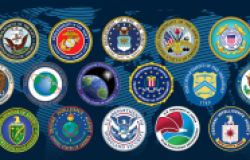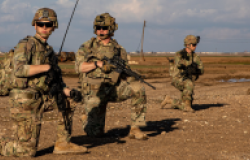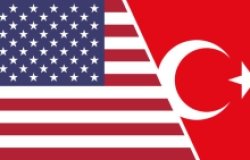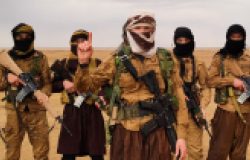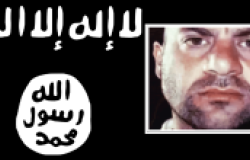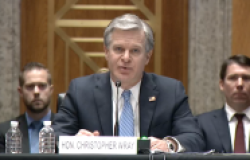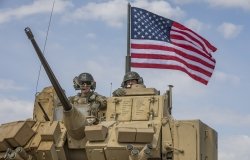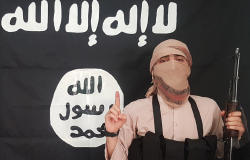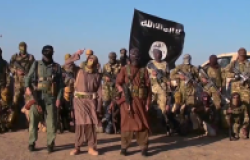Beyond ISIS Turmoil, Jordan Is Flush With Problems
Poor, oil-less, and often overlooked, Jordan is the little kingdom that could. But Jordan faces a growing array of existential challenges that it didn’t create and doesn’t have the resources to resolve—and that make it vulnerable.
Poor, oil-less, and often overlooked, Jordan is the little kingdom that could.
It has been the focus of the world this week after Islamic State’s savage murder of pilot Muath al-Kasasbeh, who was burned alive as he stood trapped in a metal cage. But Jordan faces a growing array of existential challenges that it didn’t create and doesn’t have the resources to resolve—and that make it vulnerable.
The issues start with simple geography. For decades, the Hashemite kingdom, a country slightly smaller than Indiana, has been a dumping ground of sorts, with refugees and political strays from neighboring countries seeking shelter. Jordan’s population is under 7 million—and sparse. Most of its land is arid and inhospitable desert.
Yet it is now home to more than 2 million Palestinian refugees from the Arab-Israeli conflict on its western border. The first wave arrived in 1948 and the second in 1967. Many still live in the 10 U.N. camps, according to the U.N. Relief and Works Agency.
Since 2003, Jordan has taken in tens of thousands of Iraqi refugees; at least 30,000 are still there, says Refugees International.
Since 2012, Jordan has taken in 622,000 Syrian refugees fleeing the civil war, the U.N. Refugee Agency reports. Zaatari Refugee Camp for Syrians has become Jordan’s fourth-largest city. Its rows of tents stretch for miles. The largest share of refugees are women and children.
Jordan is also home–legally or illegally–to an additional 5,000 from countries not on its borders or even the same continent, including Somalis and Sudanese who have fled conflicts at home. Jordan gets substantial international aid to help, but refugees generally have been a strain on the country’s social fabric, social services, and social tensions.
And Jordan already had problems tending to its own. “Jordan’s economy is among the smallest in the Middle East, with insufficient supplies of water, oil, and other natural resources underlying the government’s heavy reliance on foreign assistance. Other economic challenges for the government include chronic high rates of poverty, unemployment, inflation, and a large budget deficit,” according to the CIA Factbook.
Its water shortages are so chronic that National Geographic noted in a piece last year, “If Jesus were to plunge into the Jordan River today, he might well injure himself. The great biblical waterway is now little more than a shallow, unimposing trickle of sludge, a murky body of water that is in danger of withering into nothingness.”
Jordan is among the most water-stressed countries in the world. Every additional person weighs on a system already running dry.
With the wars in Syria and Iraq looking like they may drag on for years, even greater tensions are rippling across Jordan’s borders. Many refugees are looking for jobs, competing with Jordanians in a country that already can’t employ many of its own, especially a young generation most vulnerable to the appeal of extremism. Unemployment among those ages 15 to 24 is almost 30%, according to the CIA Factbook.
Jordan is not flush with oil for its own population, much less for export. It relies on the largess of the rich Gulf kingdoms and the West to survive. Of the Middle East’s eight monarchies—the others are Saudi Arabia, Qatar, Kuwait, Bahrain, the United Arab Emirates, Oman, and Morocco—Jordan has the lowest per capita income: just over $500 a month. In Qatar, by contrast, it’s almost $8,000 a month, the World Bank reports.
When ISIS released the video of First Lt. Kasasbeh’s execution, King Abdullah was in Washington winning a U.S. pledge to bump up aid to $1 billion annually for economic support and security.
Those basic survival challenges don’t include a separate range of political problems. Jordanians cover a range of political sentiment. The king may reflect the moderate side of the spectrum. But Abu Musab al-Zarqawi, the founder of al Qaeda in Iraq, was Jordanian. He was killed in a U.S. airstrike in 2006. But his movement has survived and expanded—and now controls territory also the size of Indiana.
The opinions expressed here are solely those of the author.
This article was originally published in The Wall Street Journal's Wasington Wire.
About the Author

Robin Wright
Author and columnist for The New Yorker

Middle East Program
The Wilson Center’s Middle East Program serves as a crucial resource for the policymaking community and beyond, providing analyses and research that helps inform US foreign policymaking, stimulates public debate, and expands knowledge about issues in the wider Middle East and North Africa (MENA) region. Read more

